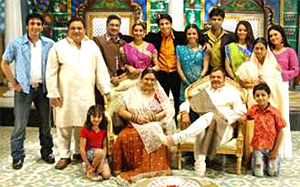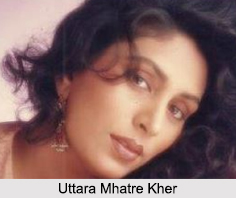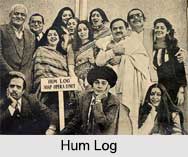 The popular family drama Thode Khushi Thodi Gham used to be broadcasted on Sony Television. The story line revolves around the story of the patriarch Mansukhlal Shah and his daughter-in-law Sneha who also claims to be superior to the opposite sex. The former was a leading industrialist of the nation whose family consists of his mother, his wife, four sons, two daughter-in-laws and a host of other relatives. Three out of his four sons assist him in his business and the fourth son is still engaged in making his academic career. He is of the firm belief that he himself and his sons are solely responsible for the taste of huge success that he had in his life ignoring totally the contribution of his wife and other female members of the family.
The popular family drama Thode Khushi Thodi Gham used to be broadcasted on Sony Television. The story line revolves around the story of the patriarch Mansukhlal Shah and his daughter-in-law Sneha who also claims to be superior to the opposite sex. The former was a leading industrialist of the nation whose family consists of his mother, his wife, four sons, two daughter-in-laws and a host of other relatives. Three out of his four sons assist him in his business and the fourth son is still engaged in making his academic career. He is of the firm belief that he himself and his sons are solely responsible for the taste of huge success that he had in his life ignoring totally the contribution of his wife and other female members of the family.
Following this twists and turns in the events of the household compels him to change his opinion. Thode Khushi Thodi Gham is all about the strong will of Mansukhlal and the iron determination of Sneha to prove that the female members are by no means less. When the former writes his autobiography he does not even mention about the women-folk of the house. The youngest daughter-in-law Sneha then comes to the forefront and claims that the autobiography holds untrue facts and is by no means a great work. She holds up her point by saying that the contribution of the women members in the family is by no means less than that of his sons. It is at this vital point that Mansukhlal challenges her to prove her claim and she accepts the challenge only with the help of the female members of the house.
Various sub-plots also render the main plot of the story and make the story line even more intriguing and convincing. From the point of challenge itself follows a war between the male and female members of the house in proving their significance. A liberal dose of humor also multiplies the interest of the plot of Thode Khushi Thodi Gham. If the soap is to be described in one line then it can be said that it is much more than just a soap opera. In fact it reflects the real-life situations of this male-dominated society. It is interesting to note how a simple girl like Sneha changes the point of view of her father-in-law who holds a very negligible respect for the women-folk in general.
The starcast of the show Thode Khushi Thodi Gham is also brilliant and comprises of several eminent actors of the television industry. The notable names include Arvind Rathod in the lead role of Mansukhlal and Deepa Parab in the character portrayal of Sneha. The others include Zankana Sheth, Harish Patel, Amit Jain, Sejal shah, Sarvadaman, Sheena Nandwani, Kapil Soni, Ayushi, Kalpana Diwan, Pratap Sachdev, Pranoti Pradhan, Ali Raza Namdar and others. Over all it was good family drama with a different set of events and the highlight of the show remained to be the victory of the women-folk over their male counterparts.



















